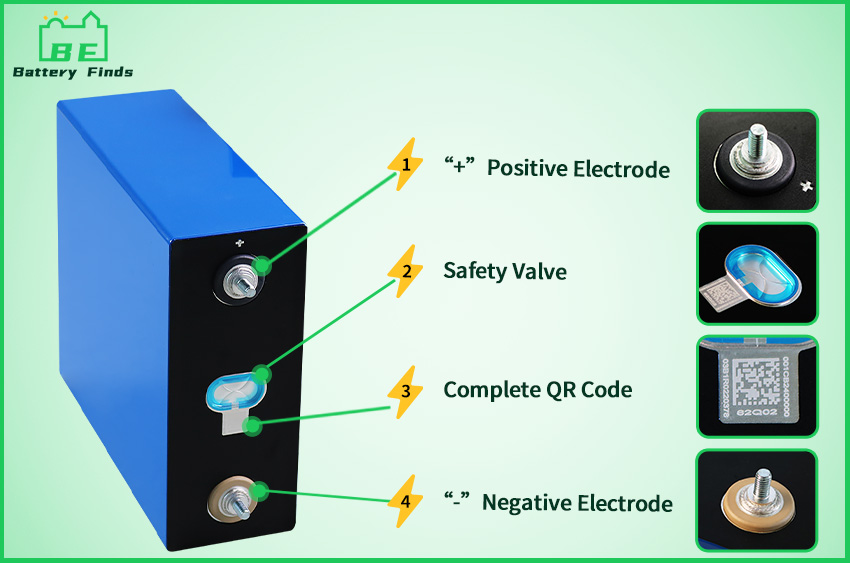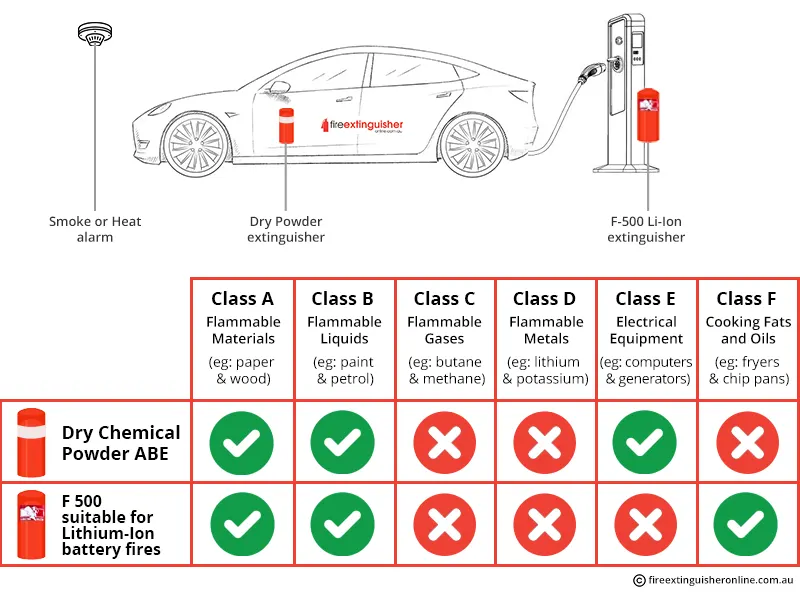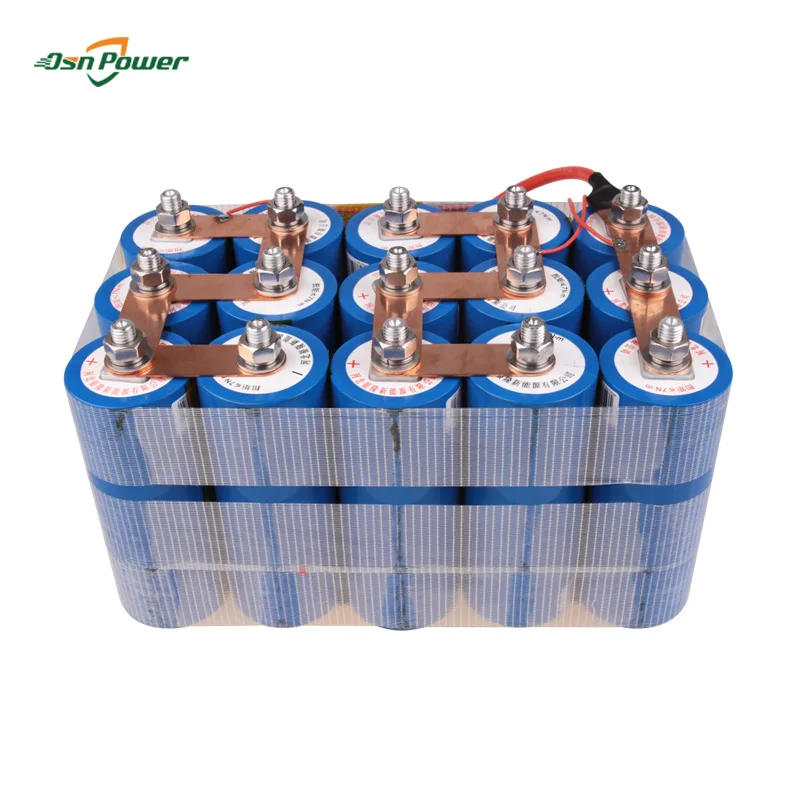LiFePO4 battery safety is a growing concern as the demand for affordable energy storage solutions rises. With the influx of cheap LiFePO4 batteries flooding the market, understanding the importance of battery management systems and safety features is essential for consumers. While these LFP batteries are known for their stability compared to other lithium-ion variants, issues like improper manufacturing can lead to significant risks. Potential buyers should be aware of battery safety tips to ensure their investments are not only economical but safe as well. As evaluations like the recent LFP battery review highlight, critical features such as over-current protection are vital in preventing hazardous situations during use.
In an era where energy efficiency and affordability reign supreme, discussions surrounding lithium iron phosphate (LiFePO4) batteries have intensified. These modern storage solutions, often referred to simply as LFP batteries, are becoming increasingly popular in applications such as off-grid solar systems. However, with a surge in demand comes a wave of products that lack proper safety measures and credible branding. As such, it becomes imperative for users to educate themselves on critical aspects like battery management systems. By arming themselves with essential battery safety tips, consumers can navigate this expanding market and choose reliable options for their energy needs.
Understanding LiFePO4 Battery Safety
When considering the use of LiFePO4 (LFP) batteries, safety should always be a priority. These batteries are known for their thermal stability and safety compared to other lithium-ion batteries, but potential risks can arise if low-quality batteries are used. It’s essential to ensure that your LFP battery comes with a reliable Battery Management System (BMS), which helps in protecting against overcharging, over-discharging, and over-current situations. Installing such protective measures not only enhances the battery’s lifespan but also safeguards your home and off-grid systems from fire hazards.
Recent reviews of various cheap LiFePO4 batteries have highlighted that many products lack sufficient safety features. For example, a thorough examination of a budget LFP battery revealed the absence of over-current protection, making it susceptible to unsafe discharge conditions. Users should consider using batteries from reputable brands and check if they have passed safety certifications. In cases where inexpensive batteries are purchased, like many found on online marketplaces, it’s advisable to enhance safety through additional measures, such as fuses and fire extinguishers.
The Rise of Affordable LiFePO4 Batteries
The market for LiFePO4 batteries has exploded in recent years, largely due to declining manufacturing costs and increased demand for renewable energy solutions. Affordable options are now readily available for both consumer and commercial use, making these batteries an attractive choice for off-grid solar installations. However, as prices have dropped, consumers have also seen a surge in poorly manufactured products that can pose safety risks. While many buyers are drawn to the appeal of cheap LiFePO4 batteries, it’s crucial to conduct thorough research before making a purchase.
Notable figures in the battery testing community have unearthed discrepancies between advertised capacities and actual performance of cheap LFP batteries. For instance, some users purchasing what were marketed as 100 Ah units found them containing fewer actual cells or cells that appeared to be salvaged. These discoveries emphasize the importance of reading LFP battery reviews and ensuring that the manufacturer has a solid reputation in the industry. Users should prioritize quality over price, particularly when it comes to storage applications that require reliable and safe energy solutions.
Evaluating Battery Management Systems (BMS) in Cheap LiFePO4 Batteries
A Battery Management System (BMS) is an integral component in lithium batteries, particularly in LiFePO4 units, as it ensures safe operation and longevity. When purchasing budget LFP batteries, consumers must critically evaluate the BMS included. Some of the findings from testing cheaper models revealed inadequate over-current protection, which could lead to overheating or even failure during high demand. This lack of essential features in the BMS should raise red flags for consumers who prioritize safety.
Moreover, a robust BMS not only manages the battery’s utility under normal operations but also can alert users to potential issues before they escalate. In research and reviews, batteries that lacked such comprehensive BMS features often resulted in diminished performance and increased risk of damage or failure. As you consider options for off-grid solar batteries, remember that investing in a battery with a well-designed, efficient BMS can save you money and provide peace of mind in the long run.
The Importance of Battery Reviews for Off-Grid Applications
When selecting batteries for specialized applications like off-grid energy systems, seeking out thorough LFP battery reviews is paramount. These reviews shed light on performance, durability, and overall user satisfaction, guiding potential buyers toward reputable products. Many budget options on the market have received negative feedback due to their insufficient energy capacity, questionable build quality, and inadequate safety features, reinforcing the need for careful consideration.
Purchasing LFP batteries for solar applications requires understanding real-world testing outcomes rather than just buzzwords or marketing tactics. As seen with recent comparisons of various budget models, discrepancies in capacity and BMS quality emerged, prompting informed users to reconsider their choices. By relying on comprehensive reviews and firsthand experiences from other users, you can identify the most reliable, safe, and effective battery solutions for your off-grid energy needs.
Tips for Ensuring Safety with LiFePO4 Batteries
The growing usage of LiFePO4 batteries necessitates the implementation of effective battery safety tips to mitigate risks associated with their use. First and foremost, confirm that the batteries you purchase come from reputable manufacturers known for their safety standards. Familiarize yourself with their safety certifications and look for batteries equipped with essential protection features in the BMS, including over-voltage, under-voltage, and thermal cutoffs.
Moreover, it’s crucial to install appropriate protective devices, such as fuses, within your battery system, thereby providing an extra layer of safety against potential over-current situations. Additionally, ensure you have fire safety measures in place, such as strategically located fire extinguishers, especially in locations where you plan to store or use these batteries. By being proactive about safety, you can fully enjoy the benefits of LiFePO4 technology without compromising your security.
Making Sense of LFP Battery Performance Testing
Performance testing of LiFePO4 batteries is vital for potential purchasers looking for reliable power solutions. Recent tests have revealed significant variances in battery capacity among different models, particularly those marketed as inexpensive. As users such as Will Prowse conduct thorough assessments, potential buyers gain insight not just into the batteries’ advertised capabilities but also into real-world performance under various conditions, which is especially important for off-grid applications.
Understanding how performance metrics like cycle life, charge/discharge efficiency, and thermal stability impact long-term use can steer consumers away from subpar lithium batteries. Comparisons drawn from various user reviews and tests help paint a clearer picture of which batteries perform reliably and which fall short. This trend shows how critical testing is for making well-informed decisions on LFP battery investments.
Longevity and Maintenance of LiFePO4 Batteries
One of the significant advantages of LiFePO4 batteries is their longevity when properly maintained. These batteries can sustain a high number of charge and discharge cycles compared to other lithium-ion technologies, making them ideal for applications where longevity is essential. However, users should also understand that consistent maintenance and monitoring can further extend battery life.
Regularly checking the battery’s performance metrics and adhering to manufacturer guidelines regarding charging and discharging cycles can prevent issues from arising. Utilizing a good quality Battery Management System is also crucial in detecting any anomalies that could lead to damage over time. Through diligent maintenance practices, users can ensure that their LFP batteries perform optimally for years, providing reliable energy for their off-grid settings.
Choosing the Right Off-Grid Solar Battery Solution
Selecting the right battery solution for off-grid solar applications involves several considerations, especially when looking at LiFePO4 technology. Potential buyers must consider their energy requirements, space available for battery installation, and budget constraints. While cheap LiFePO4 batteries may seem appealing, performance reliability, and safety should weigh heavily in the decision-making process.
It’s beneficial to evaluate various manufacturers and their offerings while reading user reviews and expert opinions. Consider the balance between price and performance, especially in applications where energy storage reliability is critical. The right battery solution can significantly save energy costs and enhance the efficiency of solar systems, making the upfront investment worthwhile.
Understanding the Market for Cheap LiFePO4 Batteries
The recent trend of cheap LiFePO4 batteries flooding the market speaks volumes about consumer demand for affordable energy solutions. However, it’s crucial to approach these products with caution due to the potential for low-quality manufacturing practices. Many of these batteries are re-branded off-brand models that may not live up to their capacity claims or safety standards.
Before investing in a budget option, consumers are advised to scrutinize available reviews and testing results. Key indicators of reliability include brand reputation, safety features, and customer feedback on longevity and performance. By doing due diligence, buyers can navigate the crowded market while ensuring they settle for batteries that meet both their needs and safety requirements.
Frequently Asked Questions
What safety features should I look for in cheap LiFePO4 batteries?
When purchasing cheap LiFePO4 batteries, it’s crucial to check for essential safety features like a robust battery management system (BMS) that includes over-current protection and thermal management. A reliable BMS should prevent overheating and manage charge/discharge cycles effectively to enhance battery safety.
Are LiFePO4 battery management systems reliable for safe operation?
LiFePO4 battery management systems (BMS) can greatly enhance safety by regulating voltage and temperature. However, it’s vital to choose batteries from reputable manufacturers to ensure the BMS is designed with adequate safety protocols, such as over-current and over-temperature protection.
What battery safety tips are essential for using LFP batteries in off-grid solar applications?
For LFP batteries used in off-grid solar systems, ensure proper ventilation to avoid overheating, use a compatible battery management system for safety, and regularly inspect for damage. It’s also wise to install fuses for over-current protection and keep a fire extinguisher nearby as a precaution.
How can I determine if a LiFePO4 battery has quality cells?
To assess the quality of a LiFePO4 battery, research the brand and review customer feedback to look for signals of quality assurance. Examine specifications carefully, such as amp-hour ratings and BMS features. If the battery is marketed as cheap, be cautious of claims and consider potential risks to safety.
What are the risks associated with using generic LFP batteries?
Generic LFP batteries often lack proper safety testing and have inferior battery management systems, which increases risks like overheating and fire. When considering cheaper options, ensure they come with safety features like over-temperature protection and avoid purchasing from unknown manufacturers to minimize risks.
Why is it important to have a fuse with LiFePO4 batteries?
Installing a fuse with LiFePO4 batteries is vital for safety as it provides protection against over-current conditions, which can lead to overheating or even fire. This precaution is especially important for low-cost batteries, as they may not have robust safety features integrated into their BMS.
What common issues should I expect with cheap LiFePO4 battery purchases?
When purchasing cheap LiFePO4 batteries, you may encounter issues such as subpar battery management systems lacking essential protections, inconsistent capacity ratings, and potential use of recycled or low-quality cells. Always ensure to verify seller credibility and customer reviews before buying.
Can I trust LFP battery reviews when considering safety?
While LFP battery reviews can provide insights into performance and safety, approach them with caution. Verify whether the reviewer conducted thorough assessments and consider the overall reputation of the brand before making safety-related decisions on a battery purchase.
What should I do if I suspect my LiFePO4 battery is damaged?
If you suspect that your LiFePO4 battery may be damaged, cease use immediately. Inspect for visible signs of damage, swelling, or leaks, and avoid charging it. It’s best to consult with a professional or dispose of the battery properly to ensure safety.
| Key Points |
|---|
| Affordability and Rising Capacities of Batteries |
| Danger of Shady Sellers and Unsafe Products |
| Case Study: Will Prowse’s $125, 100 Ah Battery |
| Lack of Over-Current Protection in Battery Management System |
| Issues with Battery Cell Quality and BMS Safety |
| Recommendations: Install a Fuse and Keep a Fire Extinguisher Nearby |
Summary
LiFePO4 battery safety is crucial when considering the purchase of inexpensive batteries from unknown manufacturers. While many of these batteries offer remarkable savings, the risks associated with subpar quality and inadequate safety measures cannot be overlooked. The case of Will Prowse’s examination reveals that even large LiFePO4 batteries may lack essential safety features, making it vital for consumers to exercise caution. Always consider investing in protective measures such as fuses and keep safety equipment accessible to mitigate potential hazards. It is clear that buyers should prioritize safety over savings when it comes to packaging and selecting LiFePO4 batteries.



